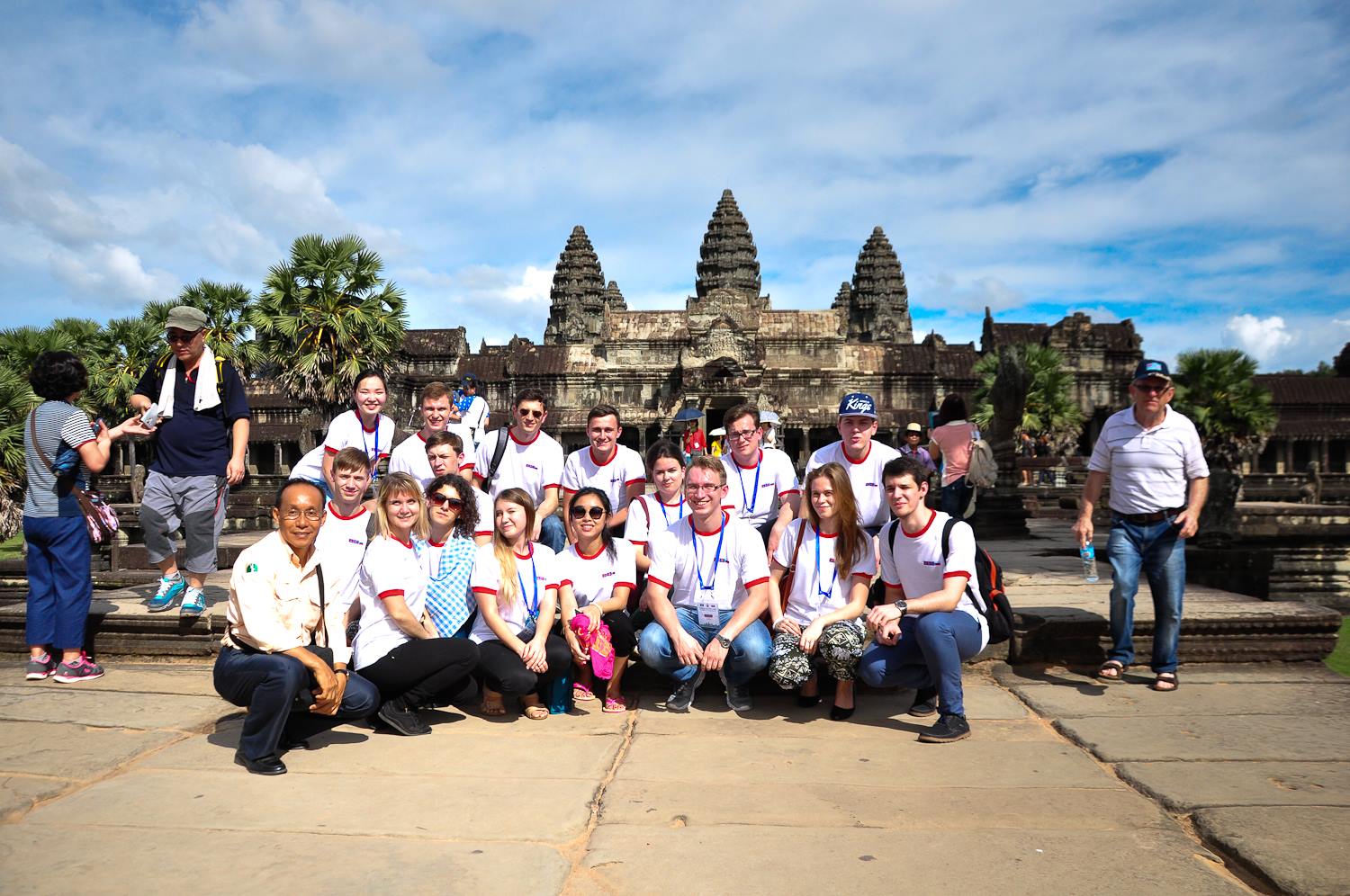
Participants of the 4th ASEAN-Russia Youth Summit in Siem Reap, Cambodia.
Press PhotoThe ASEAN-Russia Youth Summit will now become institutionalized, Cambodian Foreign Minister Prak Sokhonn said at the 4th summit, which was held in Siem Reap, Cambodia in late October.
The minister told RBTH that the summit would become the main platform for interaction between the youth of Russia and Southeast Asia.
"We will be able to determine how the summits are organized and financed, and how the delegations will be formed and what range of questions will be discussed"“One part of the institutionalization is the raising of the level of the summit, so that suggestions from the youth could be passed on to the ministerial level, at least for consideration,” Hun Many, President of the Cambodian Union of Youth Federation, said.
“This is a very important development, because it means formalizing of the Russia-ASEAN agreement to host the summits,” Viktor Sumsky, Director of the ASEAN Centre at the Moscow State Institute of International Relations (MGIMO), told RBTH. “It means, that we will be able to determine how the summits are organized and financed, and how the delegations will be formed and what range of questions will be discussed.”
Russian students of Southeast Asian languages and members of the youth from ASEAN countries participated in the summit.
With the help of experts, the young leaders discussed ways to bring their countries closer, and adopted a draft resolution, which will be published in November.
Alexander Ivanov, Ambassador-at-large, who is responsible for contacts with ASEAN in the Russian Foreign Ministry, said the summits look to launch a new communication channel between Russia and Southeast Asian nations.
Soeung Rathchavy, Deputy Director-General (ASEAN) of the Cambodian Foreign Ministry, who is an alumnus of MGIMO, called the summit “one of the most important activities to celebrate the 20th anniversary of the Russia-ASEAN Dialogue.”
She added, “the main purpose is to provide an opportunity for youth to exchange views on how to develop Russia-ASEAN ties and bring them to the strategic level.”
The summits aim to tap into the creativity of the youth, Dmitry Tsvetkov, Russian Ambassador to Cambodia told RBTH. “We are at a stage, where Russia-ASEAN relations need new ideas. The more ambitious they are, the easier they will be to implement,” he said.
"The most important thing that such a platform can help with is to make the youth aware that they need to understand issues first,” Hum Many said. “They need to be a bit more patient in learning about the challenges, the existing frameworks and existing environment before they jump to conclusions. They need to know how to take informed decisions based on the right information and the right guidance.”
The 2017 summit will be held in Manila.
Yaroslav Lissovolik, chief economist with the Eurasian Development Bank, who took part in the Siem Reap summit as an expert, called on the organizers to have more stringent selection criteria for participants, including the mandatory submission of academic papers.
“The papers should not be long, but the very fact that participants wrote them means the discussions at the summit would be more specific and interesting. Some of this year's participants were not well prepared," Lissovolik said.
Viktor Sumsky hopes that next year's participants will not only be better prepared for discussions, but will also be able to give practical insights on how to improve Russia-ASEAN ties.
All rights reserved by Rossiyskaya Gazeta.
Subscribe
to our newsletter!
Get the week's best stories straight to your inbox